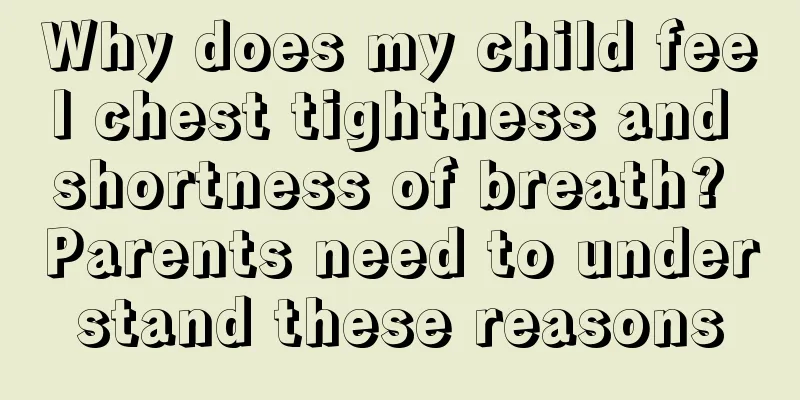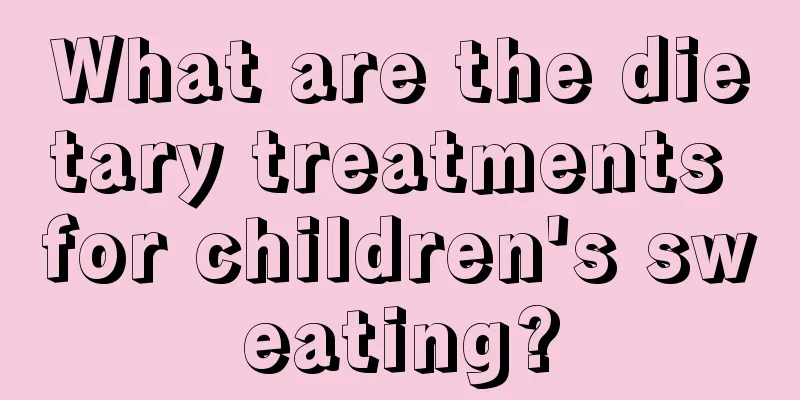Why does the baby cry when he pees

|
Friends who have taken care of babies know that babies don’t like others to help them pee. As long as he finds out that you are touching him to make him take off his pants, he will definitely resist, either crying all the time or punching and kicking you, and he will just refuse to pee obediently. It can be said that this is not an exception, it is a very common phenomenon. So, why do babies cry when they pee? Is there any medical method to explain this phenomenon? 1. Using crying to wake up parents is a form of language Crying is a way for babies to express themselves. Normally, babies cry not only when they pee, but also when they are hungry, have a bowel movement or feel uncomfortable. This is normal, it's just the language they use now, don't worry. 2. Children get angry and their urethra is damaged and inflamed The temperature is high in summer, especially when the baby is active and sweats a lot, it is necessary to replenish the baby with sufficient water in time. In addition to excluding pathological problems, mothers should always pay attention to whether the baby's vulva is red, or the urine is yellow. These are manifestations of getting angry and can easily cause discomfort to the baby when urinating. 3. The baby is nervous and doesn’t know how to deal with it Babies under 12 months old do not have the ability to control their urination and defecation, and do not know how to deal with the strong urge to urinate. In stressful situations, some babies will cry to relieve the tension caused by the urge to urinate. 4. Resist the urination method Some babies behave like this because they are not used to the way of holding their diapers. Generally, it will get better after they get used to it. The mother should check whether the baby's private parts are red. If so, you can apply sesame oil to help the baby relieve discomfort. Kind tips: If your baby continues to cry before urinating, seek medical attention promptly according to the baby's physical condition. If the child's urination and defecation are normal, there is generally no big problem and you can observe. If you are worried, you can consider a routine urine test to rule out the possibility of urinary tract infection. If the stool characteristics are abnormal, you need to check the stool to confirm whether there is any abnormality before considering how to deal with it. Children have some normal physiological reflexes, so it is mostly normal for them to defecate while feeding or quickly. Pay attention to the child's bowel movements. Generally, if the child's bowel movements increase in frequency (more than 6 times/day) or the nature of the stool changes, that is, loose stools, watery stools, or dry and hard stools, these are considered abnormal. Otherwise, there is no big problem and it is not considered to be pathological. |
<<: What are the tips for treating frequent urination in children?
Recommend
How to determine if your baby has a stuffy nose? In fact, the method is very simple
Many young people do not know how to take care of...
What should I do if I have a fever after taking the group A meningococcal vaccine?
Direct injection of group A meningococcal vaccine...
6-year-old child vomits but does not have diarrhea
The physical health of children is a concern for ...
What should I do if my baby has a hoarse voice during the confinement period?
We know that hoarseness is a symptom of laryngeal...
Sequelae of febrile seizures in children
It is very common for children to have high fever...
Delayed eruption of primary teeth
People will have teeth erupt twice in their lifet...
How to quickly reduce swelling on baby's forehead?
The safety of infants is an issue that parents at...
Why can't children eat scallops?
For adults, eating some scallops properly is very...
Can children have massage?
Many parents think that their babies are not suit...
What kind of honey is suitable for children
Children's growth and development is an issue...
What to do if your child always has a runny nose
Children's health is a matter of great concer...
What is the reason for the baby's excessive sweating?
Many mothers may find that their babies sweat too...
4 year old baby snoring
In fact, the symptom of snoring is very harmful t...
What to do if your child's foot is sprained and swollen
Children are usually more active, jumping around ...
What should I do if my baby has a fever of 38.4?
Some babies have a fever, so they need to take ap...









